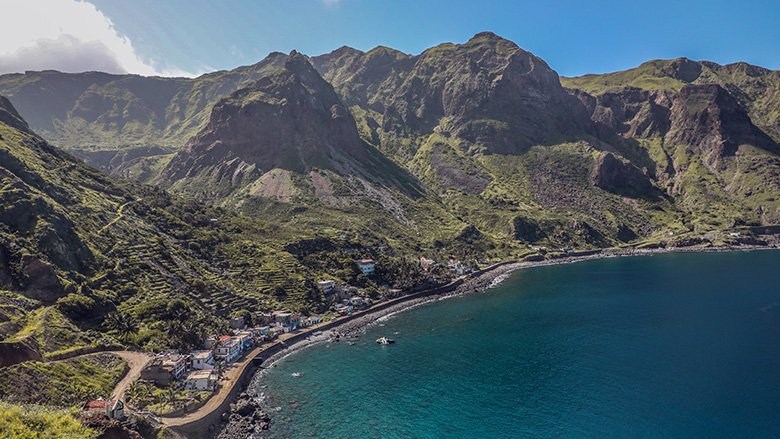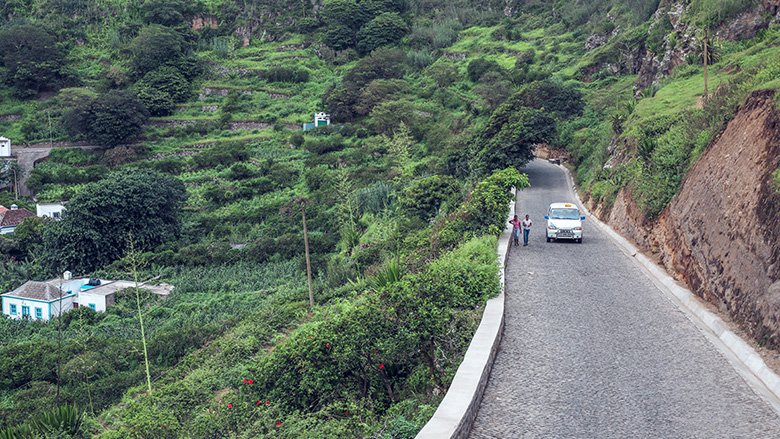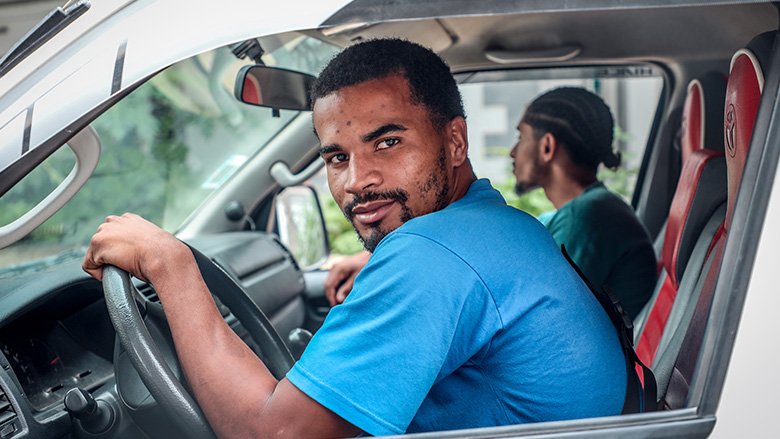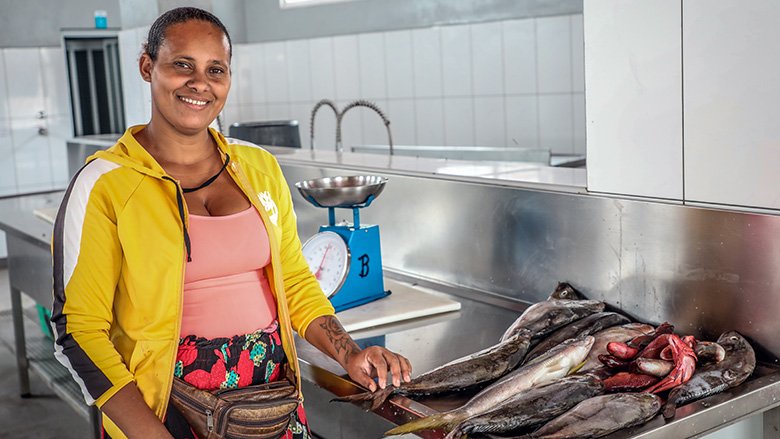Brava, Cabo Verde, 23 February, 2023 – Brava is the smallest inhabited island in Cabo Verde. It is 104 km² and counts fewer than 6,000 inhabitants or roughly 1% of Cabo Verde's population. The island withstands frequent volcanic events, which threatens its roads. The only way to reach Brava is on boats transporting passengers, goods, and merchandise daily. The island is the most isolated in the Cabo Verde archipelago, and its economic development is stagnant.

Fajã D'Água locale, one of the most beautiful bays in Cabo Verde.
@Marco Silva, World Bank
STORY HIGHLIGHTS
- Brava, one of the more isolated islands in Cabo Verde, has the highest rate of global and extreme poverty in the country.
- The roads that connect the island’s villages are strategic to safeguard the security of the population and support development.
- Sustainable tourism could be a main driver for development.
It’s necessary to overcome some of the structural challenges that the island faces, such as improving connectivity to the country’s other islands, access to healthcare, and water availability.
Sustainable Tourism as a main driver for the future
The island is the birthplace of Eugénio Tavares, a Cabo Verdean poet, musician, writer, and journalist. In 2013, its main village, Nova Sintra, became the first Cultural Capital of Cabo Verde. That same year, sustainable tourism was designated as a driver for its development.
Brava’s mayor Francisco Tavares said that to achieve this objective, “it’s necessary to overcome some of the structural challenges that the island faces, such as improving connectivity to the country’s other islands, access to healthcare, and water availability’’. Investment is needed to prepare the island for the much-desired development: welcoming tourists.
EN3-BR-02: A road rebuilt stone by stone
The 46-million dollars Transportation Sector Reform Project financed by the World Bank, through the International Development Association (IDA) includes improvement and maintenance of roads in Cabo Verde. One of its components is the paving and improvement of the EN3-BR-02 road in Brava inaugurated on September 21, 2022.
Brava is divided into two parishes: São João Baptista, where the capital, Nova Sintra village, is located, and Nossa Senhora do Monte. The two parishes are linked by the EN3-BR-02 Road. With strong seismicity, volcanic eruptions, earthquakes, and land displacements may occur. Therefore, the road is strategic in safeguarding and securing the population as well as ensuring support to the villages and the development of the local economy.
One of the main investments on the island, which will ensure safe mobility and impact economic development, is the complete rehabilitation of the 5.25 km stretch of road that links Nova Sintra to Nossa Senhora do Monte and the drainage and slope improvements along a further 7 to 8 km, in a total road network of 29 km.
To protect the historic heritage and attract tourists, a new cobblestone paving replaced the previous one, which was close to 100 years old. The existing pavement was removed, and earthworks, construction of sidewalks, paving, stabilization of embankments, drainage, support walls, structures and safety features, as well as road signage were implemented.
Road’s safety and development for all
For the 26-year-old Hiace driver Roberto Jorge, who does the Nova Sintra village – Nossa Senhora do Monte commute about 6 to 7 times every day, ‘‘the rehabilitation work ensures more traffic safety and accessibility and reduces the risk of car crashes. The old road was narrower, and the cobblestones were worn out. It was unsafe for drivers’’.
Fishing is an important activity for the people of Brava, an island in Cabo Verde. It is an income generator for many families. But it needs reliable infrastructure to prosper.
Ivete Veiga Gomes, a 29-year-old mother of 3, with 12 years of experience as a fishmonger, welcomes the new road. She remembers that ‘‘during the rainy season, when there were landslides and road breakages, it wasn’t possible to go to the market to sell our fish. With poor storage conditions, we would end up without fish to sell’’.
For Brava residents such as Roberto and Ivete, the rehabilitated road is already a major improvement and a gateway to safety and prosperity.



